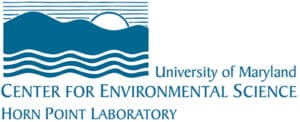The University of Maryland Center for Environmental Science (UMCES) Horn Point Laboratory is seeking applications to fill the position of Shellfish Aquaculture Outreach Specialist. This position will be either a Faculty Research Assistant or Assistant Research Scientist dependent upon education and experience. This position will be located in Cambridge, Maryland. The Outreach Specialist position will be a Full time hybrid position reporting directly to Horn Point Lab director, Mike Sieracki.
The Chesapeake Bay is renowned for its fishing and aquaculture industries, as well as its restoration program – one of the largest restoration initiatives in North America. Coexistence and constructive collaboration between these sectors are crucial and largely dependent upon the levels of effective communication among different stakeholders.
The Shellfish Aquaculture Outreach Specialist will play a pivotal role in bridging the gap between scientific research and industry application in the areas of shellfish aquaculture, fisheries, and restoration. Collaborating closely with Horn Point Laboratory scientists, and home to the largestthe oyster hatchery on the East Coast, the person in this position will focus on translating solution-driven research into actionable strategies to enhance the diversity, productivity, growth, and resiliency of the Chesapeake Bay shellfish aquaculture and wild harvest industries. This position is partially supported by Maryland Sea Grant and the Outreach Specialist will be part of the Sea Grant network and work with the Maryland Sea Grant program. Advancing sustainable aquaculture and wild fisheries are core missions of Sea Grant. The person in this position will have access to Sea Grant resources and be expected to work with Maryland industry, state government and non-governmental organizations important to fisheries issues in the state.
- Interpret scientific findings and advancements in shellfish aquaculture, fisheries, and restoration into practical strategies and recommendations for industry stakeholders.
- Collaborate with research teams to identify emerging challenges and opportunities in the field and develop innovative, practical solutions.
- Participate in scientific and industry conferences.
- Publish reports and articles about this translation.Translation of Science to Industry
- Outreach and Engagement:
- In collaboration with Maryland Sea Grant education experts, develop and execute outreach efforts to engage local community groups, schools, and industry partners in the mission to improve Chesapeake Bay aquaculture and wild harvest practices.
- Organize and participate in community events, workshops, and educational programs to disseminate knowledge and promote sustainable practices.
- Contribute to Maryland Sea Grant outreach materials and blogs in collaboration with Sea Grant’s communication team.
- Partnership Development:
- Foster strong relationships with industry associations, governmental agencies, non-profit organizations, and the Sea Grant network to facilitate knowledge exchange and collaborative initiatives.
- Identify funding opportunities and participate in grant writing to support research and outreach projects aligned with organizational goals.
- Education and Training:
- Work with Maryland Sea Grant to develop educational materials, resources, and training programs tailored to various stakeholder groups, including farmers, fishermen, and students.
- Provide technical assistance and guidance to industry professionals on best practices in shellfish aquaculture, fisheries management, and habitat restoration.
Minimum Qualifications:
- Master’s degree in marine science, aquaculture, fisheries, environmental science, or related field.
- Willingness to travel in the mid-Atlantic region and work occasional weekend or evening events as needed.
- Physical ability to handle aquaculture and harvesting gear is required.
- Must be eligible for a Maryland driver’s license.
- Excellent written and verbal communication skills, with the ability to convey complex scientific concepts to diverse audiences.
- Understanding of shellfish biology, and aquaculture and fishing techniques.
- Ability to use word, spreadsheet, presentation, and database software.
Preferred Qualifications:
- Experience in science communication, outreach, and stakeholder engagement.
- Demonstrated project management skills, including the ability to prioritize tasks, meet deadlines, work effectively in a team environment, and promote diversity, equity, and inclusion.
- Experience in crafting, obtaining, and/or executing grant proposals.
- Ability to establish and maintain professional relationships and work both independently and as a part of a team.
The University of Maryland Center for Environmental Science is an equal-opportunity employer. The Center’s policies, programs, and activities are in conformance with pertinent Federal and State laws and regulations on nondiscrimination regarding race, color, religion, age, national origin, sex, and disability. Inquiries regarding compliance with Title VI of the Civil Rights Act of 1964, as amended; Title IX of the Educational Amendments; Section 504 of the Rehabilitation Act of 1973; and the Americans with Disabilities Act of 1990; or related legal requirements should be directed to the Director of Human Relations, Center Administration, P.O. Box 775, Cambridge, MD 21613.

